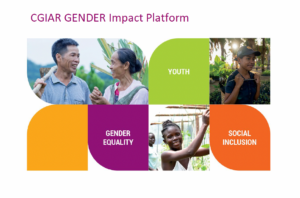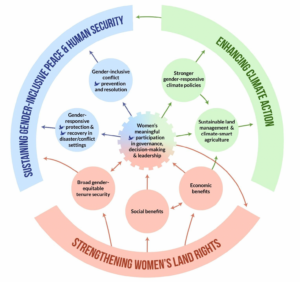Access to energy is a critical factor for poverty alleviation, improvements in health and education, environmental sustainability, and the empowerment of women. Energy services such as lighting, cooking, heating and cooling, water pumping, refrigeration, transportation, and communications are essential for economic and social development. However, gender inequities continue to pervade the energy sector. Globally, women spend an average of three hours per day on fuel and water transportation, which is on average three times as much time as men spend. Consequently, women and children suffer from higher levels of lung and eye disease because they spend more time inside the house exposed to indoor air pollutants and fuel emissions, which is both a major public health and an environmental issue. Also, energy-related institutions have significantly fewer female professionals at all levels, as women are less likely to receive training due to social misconceptions, family responsibilities, and cultural constraints.




